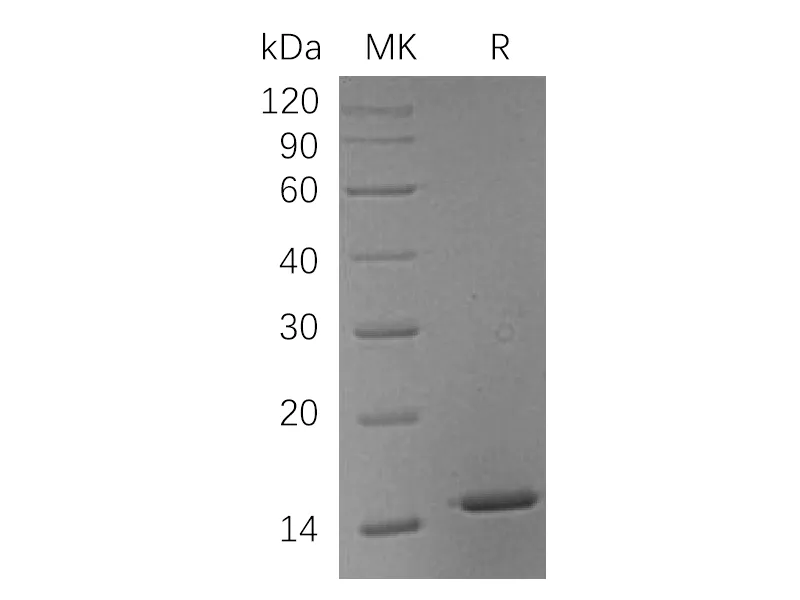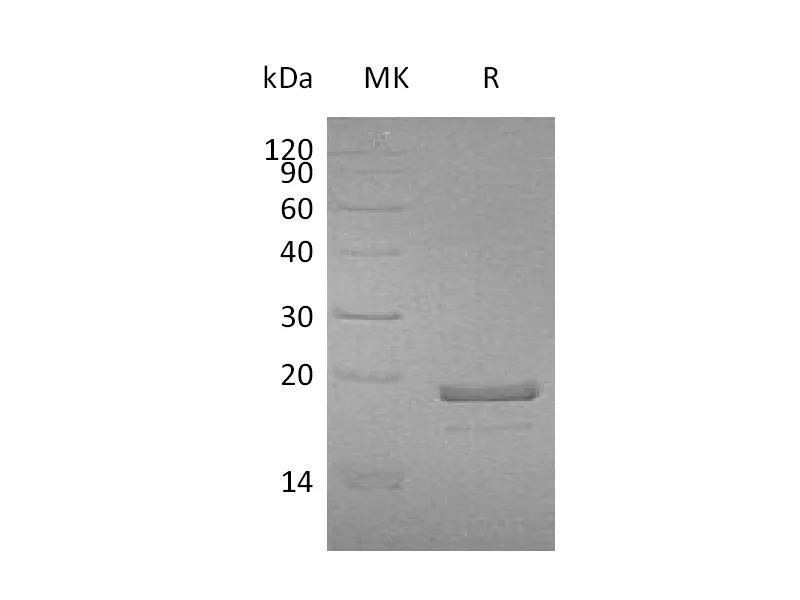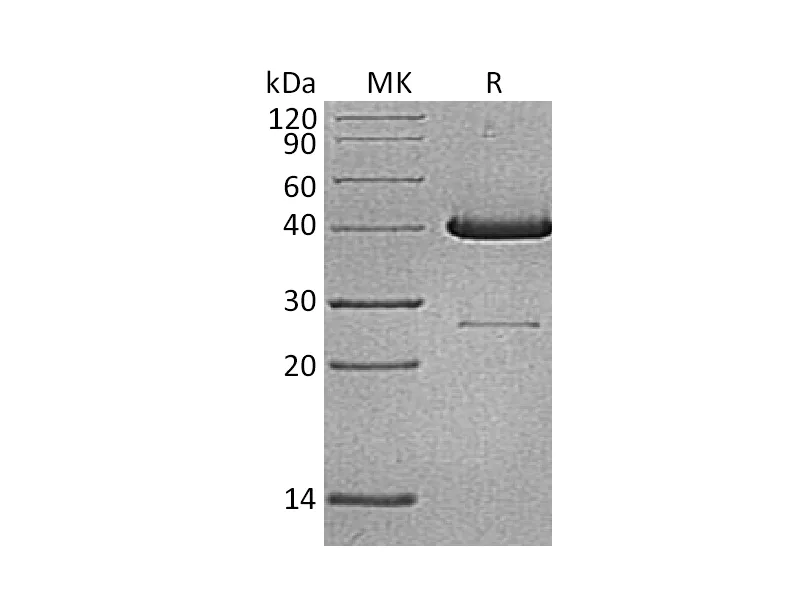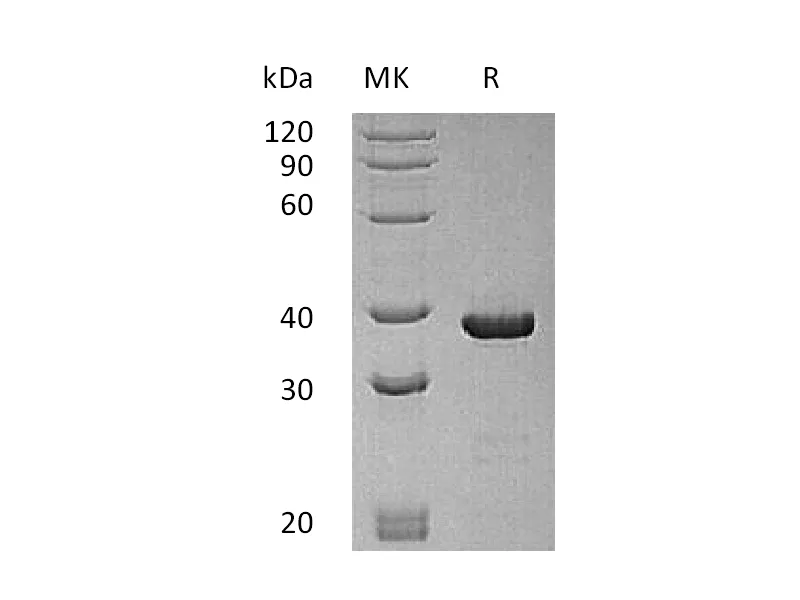| 产品名称 |
Recombinant Mouse Legumain (C-6His) |
| 英文名称 |
Legumain/Asparaginyl Endopeptidase/AEP |
| 纯度 |
Greater than 95% as determined by reducing SDS-PAGE |
| 内毒素 |
<1 EU/µg as determined by LAL test. |
| 蛋白构建 |
Recombinant Mouse Legumain/Asparaginyl Endopeptidase is produced by our Mammalian expression system and the target gene encoding Val18-Tyr435 is expressed with a 6His tag at the C-terminus.The enzyme achieves its activity under acidic pH. |
| Accession |
O89017 |
| 表达宿主 |
Human Cells |
| 种属 |
Mouse |
| 预测分子量 |
48.7 KDa |
| 制剂 |
Supplied as a 0.2 μm filtered solution of 20mM Tris-HCl, 150mM NaCl, 20% Glycerol, pH 8.0. |
| 运输方式 |
The product is shipped on dry ice/polar packs.Upon receipt, store it immediately at the temperature listed below. |
| 稳定性&储存 |
Store at ≤-70°C, stable for 6 months after receipt.Store at ≤-70°C, stable for 3 months under sterile conditions after opening. Please minimize freeze-thaw cycles. |
| 复溶 |
| 分子别名 |
| Legumain; Lgmn; Asparaginyl endopeptidase; Protease cysteine 1; Prsc1 |
| 背景介绍 |
| Mouse Legumain,also known as LGMN, is a cysteine protease belonging to peptidase family C13 and is expressed in kidney and placenta abundantly. LGMN has a strict specificity for hydrolysis of asparaginyl bonds. It can also cleave aspartyl bonds slowly, especially under acidic conditions. The mammalian legumain is involved in the processing of proteins for MHC class II antigen presentation in the lysosomal/endosomal system. It plays a role in the regulation of cell proliferation via its role in EGFR degradation. Legumain deficiency causes the accumulation of pro-Cathepsins B, H and L, another group of lysosomal cysteine proteases. Overexpression of Legumain in tumors is significant for invasion/metastasis. Mammalian legumain is inhibited by iodoacetamide and maleimides. Legumain activation appears to be autocatalytic and can be triggered by acidic pH. |
注意事项
本司产品仅用于科研,不用于临床诊断和治疗




